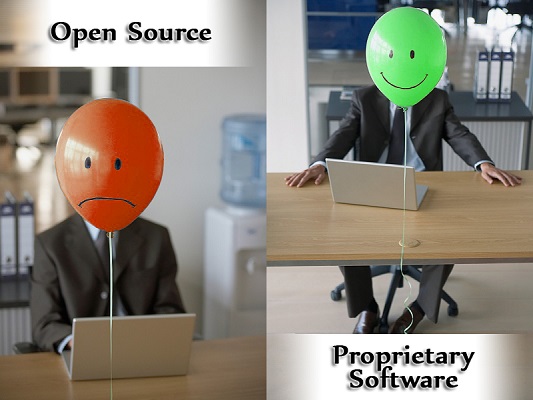
When it comes to choosing software for Personal Computer systems, we know we can easily choose between proprietary software and open source. The same applies to cloud platforms: which model is best suitable for your business?
In today’s competitive market, cloud platforms like OpenStack, CloudStack, and Eucalyptus are open-source alternatives to proprietary solutions for commercial businesses.
These models provide many similar benefits that distinguish any open source program: community access, shared resources, rapid updates, and freedom to not be tied to the limits of the software owners. But, although a few cloud service providers prefer to create their services on open-source platforms, while most opt for the model of proprietary platforms.
Service providers in the cloud often find themselves more comfortable with well-known solutions, for example, those of “VMware”. That’s why the adoption of open platforms is still new and evolving slowly. A study conducted by TechTarget among 260 cloud service providers, showed that only 22 percent of service providers had adopted the OpenStack software.
Here are the advantages of each model that helps try to resolve the dilemma.
Why proprietary solutions?
- The vendors do all the work to test, develop, and integrate.
- The best-known solutions or relatives also facilitate the work of IT professionals, especially in smaller companies.
- Proprietary software includes the convenience of signing Service Level Agreements (SLAs).
- The evolving nature of open platforms can be challenging for a cloud provider, which does not have the resources to manage complicated technologies.
- The maintenance and updates are generally related to the owner of the software.
Why open-source solutions?
- While it is true that its management is more complicated, it is also more flexible.
- Providers who opt for open source do not want to be tied to the designs of the companies that own, or that their customers depend on them.
- Control panels in self-service offering support are varied and many more configuration options.
- The licenses of proprietary solutions involve higher costs.
However, it is not about radically opting for one side and discarding the other. As mature open-source solutions and IT professionals gain experience, we will be closer to a hybrid solution that provides the best of each. Also, the more demand evolves cloud providers will need multiple technologies and platforms that give them support, and always adapt to the needs of their customers. And that’s where the solutions will gain hybrid space containing the best of each option.
1 Comment
CloudReviews defines others benefits of cloud computing. review it.